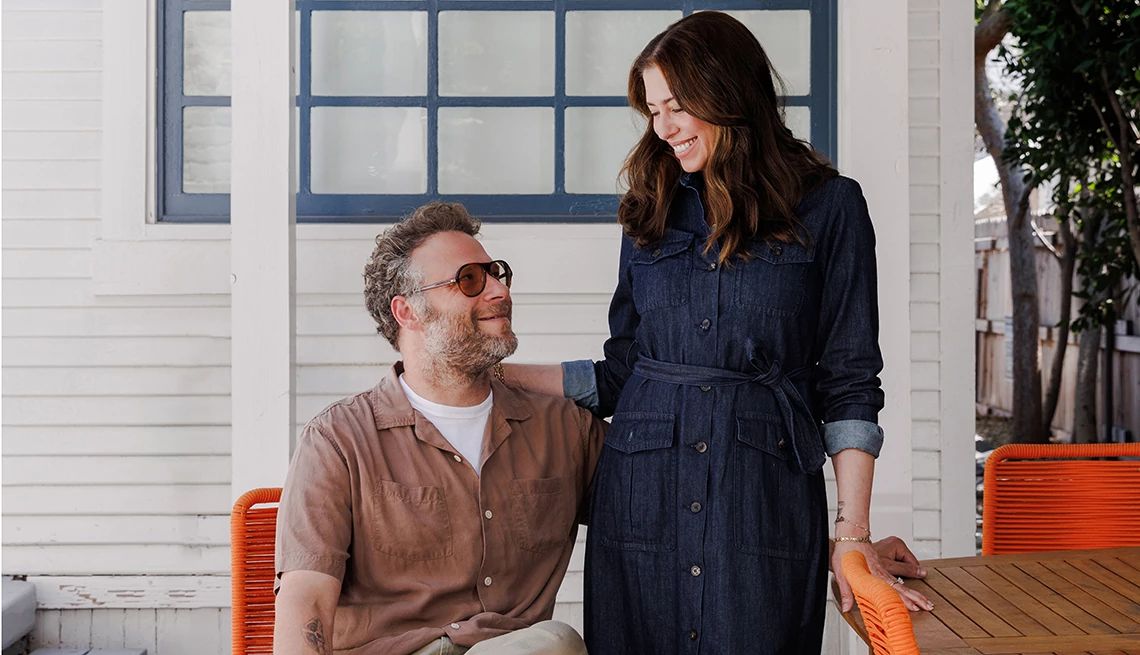AARP Hearing Center
Actors and filmmakers Seth Rogen, 42, and Lauren Miller Rogen, 43, have produced a short film documenting Lauren’s late mother’s struggles with early-onset Alzheimer’s disease. “Taking Care” uses footage Lauren shot as well as interviews with the couple about their experiences dealing with a family crisis and their efforts to help through Hilarity For Charity, the non-profit they founded.
How did this documentary come about?
Lauren: My mom’s condition really advanced starting in 2008, when suddenly I had a [smartphone] camera with me. There’s this moment in the film where she was slamming doors and screaming at nothing. It was this mind-blowing moment of “This person is so far from who my mom was.” It was scary and unnerving, and I felt so alone. And I just was like, “I’ve got to film this.” If people knew that this was the reality, it wouldn’t be whispered about. Everyone would be taking action.
Seth, do you think that, because you’re in comedy, when you talk about a serious matter, people take more notice? Like, if this guy’s concerned about it ...
Seth: Yeah, I think people probably are confused at first that I’m speaking about this in any way, shape or form. But I also think the type of comedy I’ve done and the type of movies I’ve made have been based on my real life and the things I’m experiencing. We made a movie, 50/50, about my 25-year-old horny friend having cancer that he survived.
Lauren, your mom didn’t want others to know about her disease while she was alive. Why not?
Lauren: I’d say it’s society’s fault that my mom wanted to keep it a secret. She had seen both of her parents go through it, and she was diagnosed a few years after my grandmother had passed away. I can only imagine how terrifying that was for her. She wanted to maintain her independence as much as she could, until she couldn’t. I understand why she wanted to keep it a secret, but that doesn’t mean it wasn’t really hard for me to keep it a secret.
Seth, what was it like dating someone who was dealing with such a huge emotional issue?
Seth: Honestly, I had never been in a serious relationship of any type before, so I had nothing to compare it against. I felt very bad for her. I could support her and love her, but I couldn’t actually untangle how to address any of these problems. I implored Lauren to go to therapy. Some people come from families where they don’t like to delve deep. My family can’t wait to indulge in the emotional darkness.







































































More From AARP
8 Major Health Risks for People 50 and Older
A look at the top killers — and how to dodge them